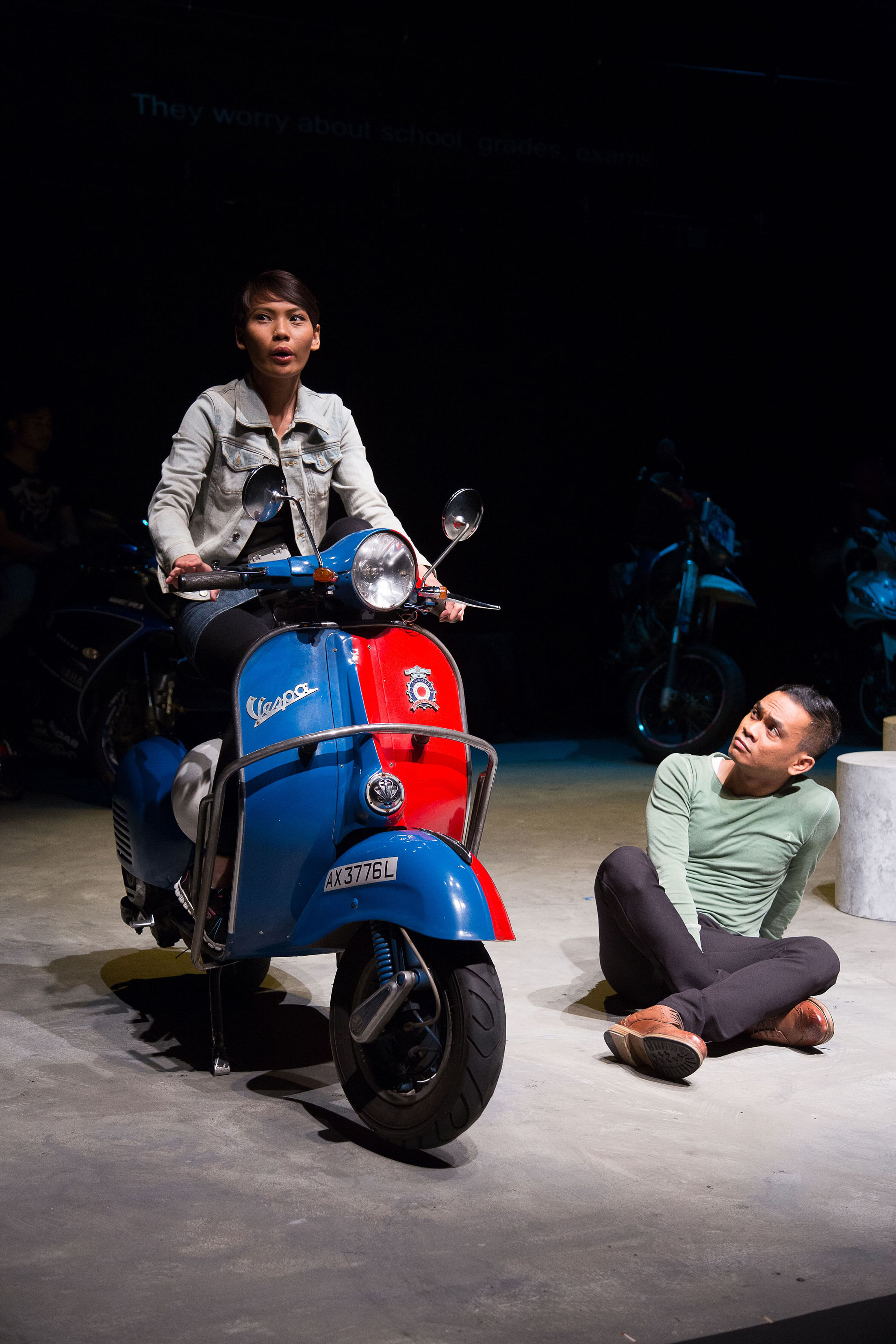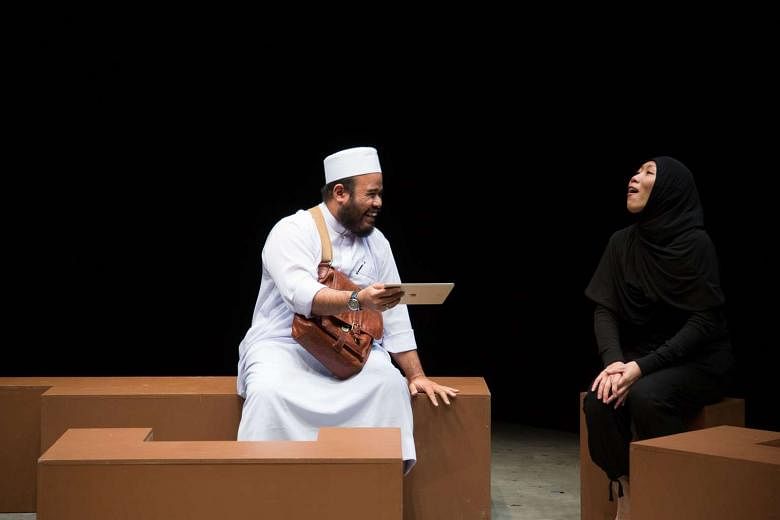REVIEW / THEATRE
RIDERS KNOW WHEN IT'S GONNA RAIN
Wild Rice
HAWA
Hatch Theatrics
Creative Cube, Lasalle College Of The Arts/ Last Saturday

Communities are under the spotlight in this double bill presented at Wild Rice's Singapore Theatre Festival.
Riders Know When It's Gonna Rain observes four 20somethings in the "mat moto" fraternity. They ride two-wheelers and are either road hogs or brave underdogs, depending on the viewer's choice of vehicle.
In Hawa, the outsider is a Chinese Muslim convert trying to organise an appropriate funeral for her Malay girlfriend.
Prickly in grief, she struggles with her religious and community responsibilities when reminded by two strangers, a funeral director and an uninvited mourner.
Both plays are performed in Malay and English, with English surtitles. Both are restagings, reworked after debuts last year.
And both are as different as chalk and cheese and much better appreciated separately.
Riders Know When It's Gonna Rain is a series of vignettes directed by Aidli "Alin" Mosbit and written by Nessa Anwar.
It is an interesting introduction to the world of despatch riders and bikers, but it does not adequately convey the highs and lows of this lifestyle to newbies. Missing is the joy of the open road, the despair of a flooded engine in traffic and the reason Norisham Osman's character is driven to daredevil races that put him in hospital.
Also conspicuous by its absence is the story driving the sole female in the fraternity. She has a soliloquy, but her hatred of her scarred legs is never again explored in the play.
Like the Scrambler bike which routinely fails to kick-start in the play, Riders stalls at times, unsure whether it is a coming-of-age story, love story or documentary. Transitions between scenes are also awkward such as when Nessa has to put on or discard a leg brace - looser pants would solve this issue - and a hospital bed is moved unnecessarily. With four twowheelers crowding the stage, one also wonders if other props are required.
One of the best scenes involves Raimi Safari and Riduan Zalani polishing a Vespa. The care bestowed on the bike while the friends banter and sing is the tender heart of this play worn on its tough leather sleeve.
Hawa by Hatch Theatrics is a play that knows exactly where it is going. Written by Johnny Jon Jon and directed by Faizal Abdullah, who also cameos as a heavy- handed father, Hawa is a breathtaking, beautiful and practical illustration of clashing cultures.
Koh Wan Ching plays Siti, a Muslim convert determined to give her dead girlfriend an appropriate burial while remaining an outsider in the Malay-Muslim community. She is eventually enfolded by a funeral director (Saiful Amri) and an unwanted mourner Zaki (Al-Matin Yatim), both reprising their roles from the first staging.
Zaki comes to hook up with hijab-wearing mourners, but instead plays the role of a holy fool whose questions make Siti face her grief and religious duties.
The production team led by Nur Khairiyah, Nadia Cheriyan and Terence Lau, with Helmi Fita on lighting and Uzair Daud on sound, makes the small stage of the Creative Cube immense. Drapes and lighting mimic the veils that separate past from present - and humans from the divine - while jigsaw pieces are moved around the main stage to become living room furniture and a washing table for the deceased's final bath.
There are minor irritations, including the absence of any of Siti's neighbours during a time of grief - are we so selfishly isolated in HDB blocks? - and her determined refusal to include her girlfriend's family in the funeral.
Yet these are overshadowed by the immense mystery unfolding on stage as Saiful's character shows Siti how to bathe the body and prepare it for burial.
As the three utter the last prayers for the dead, the sense of finality is absolute and the silence difficult to break even with applause.
•The double bill ended its run yesterday. For other plays in the Singapore Theatre Festival, go to www.singaporetheatrefestival.com


